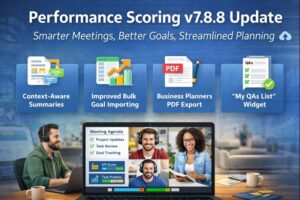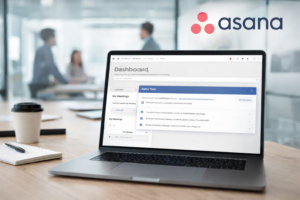It’s a commonplace perception that Wednesdays are often the hardest part of the week, colloquially dubbed as the ‘hump day’. However, rather than treating it as a challenge, let’s reframe Wednesdays as an opportunity for a mid-week check-in to bolster productivity, efficiency, and morale.
Mid-Week Check-Ins: A Catalyst for Performance
According to research conducted by the Harvard Business Review (HBR), regular check-ins or touch-points significantly contribute to improved team productivity and overall job satisfaction[^1^]. It helps keep everyone aligned with goals, fosters transparency, and accelerates decision-making. Instead of limiting feedback and discussion to a once-a-year performance review, embedding it in regular interactions leads to a more agile, engaged and performance-driven environment.
By setting these touch-points at mid-week, we leverage the power of timing. A study from the Journal of Occupational and Organizational Psychology found that mid-week is when people are generally at their most productive[^2^]. Wednesday, specifically, provides a balance – it’s an ideal moment to reflect on the progress from the start of the week, recalibrate, and optimally plan for the remaining days.
Integrating Check-Ins Into Meetings With Performance Scoring Modules
To make the most of these check-ins, an integrated approach is needed that goes beyond an informal chat. Here is where the meeting module in Performance Scoring systems comes into play. Performance Scoring modules, like those available in various project management and HR software, enable leaders and teams to track progress, give and receive feedback, and identify areas of improvement in a structured, systematic way. By integrating this with the meeting agenda, these modules can enhance the effectiveness of check-ins, making them more than just a ‘catch up.
The meeting agenda can have dedicated sections for progress updates, goal tracking, feedback, and recognition, each powered by the Performance Scoring module. For instance, the agenda can kick off with a review of the performance scores from the past week, followed by discussion and feedback. This sets a clear tone and context for the meeting, ensuring all participants are on the same page.
The beauty of this integrated approach is that it offers real-time insights and data-driven conversations. This enables teams to not only review what has happened but also anticipate and plan better for what lies ahead. Additionally, it fosters a culture of continuous feedback, openness, and mutual support, crucial elements in today’s dynamic and often remote working environments.
Let’s turn our focus to the transformative power of the mid-week check-in. As we’ve explored, these structured, data-driven discussions not only offer a pulse-check on progress, but also provide a platform for anticipation, planning, and course correction. Powered by the combined strength of Performance Scoring modules and meeting agendas, Wednesday check-ins aren’t just a work-week pitstop, but a launchpad propelling teams towards success.
^1^: “The Power of Regular Check-ins”, Harvard Business Review. https://hbr.org/2019/03/the-power-of-regular-check-ins^2^: “Temporal patterns of self-reported alertness and cognitive efficiency in performance of professional drivers during a five-day work week”, Journal of Occupational and Organizational Psychology. https://bpspsychub.onlinelibrary.wiley.com/doi/abs/10.1111/j.2044-8325.1992.tb00524.x



